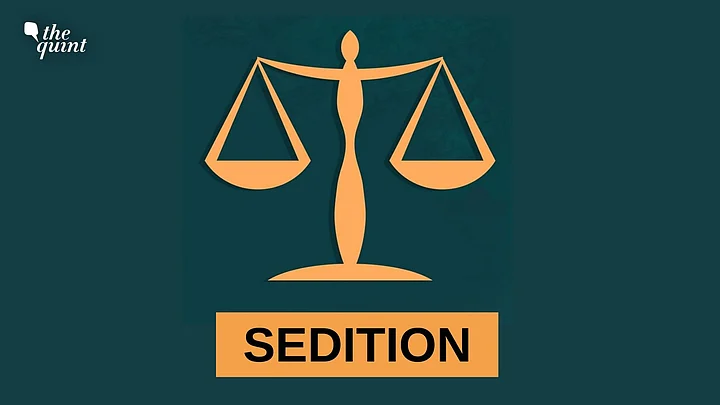The 22nd Law Commission recently suggested that Section 124A of the Indian Penal Code (IPC), which deals with sedition, be retained and that the minimum sentence for the offence increased from three years to seven years in prison.
The law commission's submission, however, might be a mechanism to support the interests of the Centre, which may choose to retain the colonial-era law for political rather than administrative reasons.
It also has the potential to devastate the fundamental concept of personal liberty in India.
A Few Key Concerns
The Supreme Court's decision in Kedar Nath Singh v. Bihar, which held that the provision can only be invoked in cases where alleged seditious acts lead to, or tend to lead to, violence or public disorder, has been incorporated into the Law Commission's recommendation.
However, the proposed amendment's language is more expansive, and if it were to be adopted, it would render even the mere propensity to encourage violence unlawful. This is even if such violence or disorder never actually takes place.
The legislation would become stricter, as a result.
Additionally, a proposed change in penalty does nothing to address the sedition law's ambiguity.
The commission also fails to address even one of the concerns brought forth in the constitutional challenge against section 124A.
In fact, despite a growing body of evidence to the contrary, all of these problems have really been flatly denied.
The Shreya Singhal ruling from 2015, in which the Supreme Court determined that vague and over-broad charges would be unconstitutional and cannot be justified as a restraint on free expression, is not even taken into account.
What the Data Shows
The Law Commission goes on to claim that misuse of sedition is only alleged whereas the threat to internal security and sovereignty is very much real. But the commission failed to mention the cases of Vinod Dua, Disha Ravi, JNU, Protestors in anti-CAA, etc. where the Supreme Court observed that the sedition law is repeatedly used to silence the opposition of the government and there is a long list of misuse of this stringent law.
Statistics provided by NCRB show that the number of reported instances of sedition grew in 2020 – the most recent year for which NCRB data is available. The outcome, however, remained the same.
Only 23 of the 230 total instances reported were charged.
In 2020, the number of sedition charges pending in court touched nearly 95%.
Between 2014 and 2020, there was a 28 percent annual increase in sedition cases, compared to the yearly average between 2010 and 2014.
Of the 10,938 Indians charged with sedition in the recent decade, 65 percent were charged after May 2014. Now if the recommendation of the law commission is heeded to, 124A will become stronger than ever before.
Far Too Many Stringent Laws?
On a parallel note, this recommendation by the 22nd Law Commission is not the first such step in the direction of curbing personal rights. Grant of bail is already virtually impossible under the UAPA and other special laws.
A three-judge division bench of the Supreme Court also recently overturned its own earlier decisions and held that mere membership of a banned organisation is to be considered an offence under the Unlawful Activities (Prevention) Act, 1967 (UAPA).
The three-judge division bench headed by Justice M.R Shah (Retd) along with Justices Sanjay Karol and CT Ravikumar observed that when an association is deemed illegal through a notification (under Section 3 of the UAPA, 1967) an individual who is and continues to be a member of such an organisation is subject to punishment for a period of up to two years of imprisonment, as well as a fine under Section 10(a)(i) of the UAPA.
The Supreme Court’s order putting sedition law in abeyance (May 2022) had come as a wave of relief for the citizens of this country, as the Supreme Court showed a progressive approach to protecting the rights of the people.
Now if the recommendation of the 22nd law commission is accepted in its present form, it might have a negative impact on the protection of civil rights and personal liberty.
Stringent laws that curb speech and liberty appear to have been increasingly employed in recent years to suppress journalists, academics, political opponents, and students, particularly those hailing from minority communities and/or those critical of the ruling dispensation.
In that context, one might wonder if the Law Commission's suggestions were intended to limit resistance to the government's unfair and unilateral practices. One would also wonder if those who have the right to organise rallies, dharnas, and the like—students, journalists, or academics—could face serious legal repercussions just for raising their voice against the state.
(The writer is a legal researcher based out of Delhi. This is an opinion piece and the views expressed are the author’s own. The Quint neither endorses nor is responsible for them.)
(At The Quint, we question everything. Play an active role in shaping our journalism by becoming a member today.)
